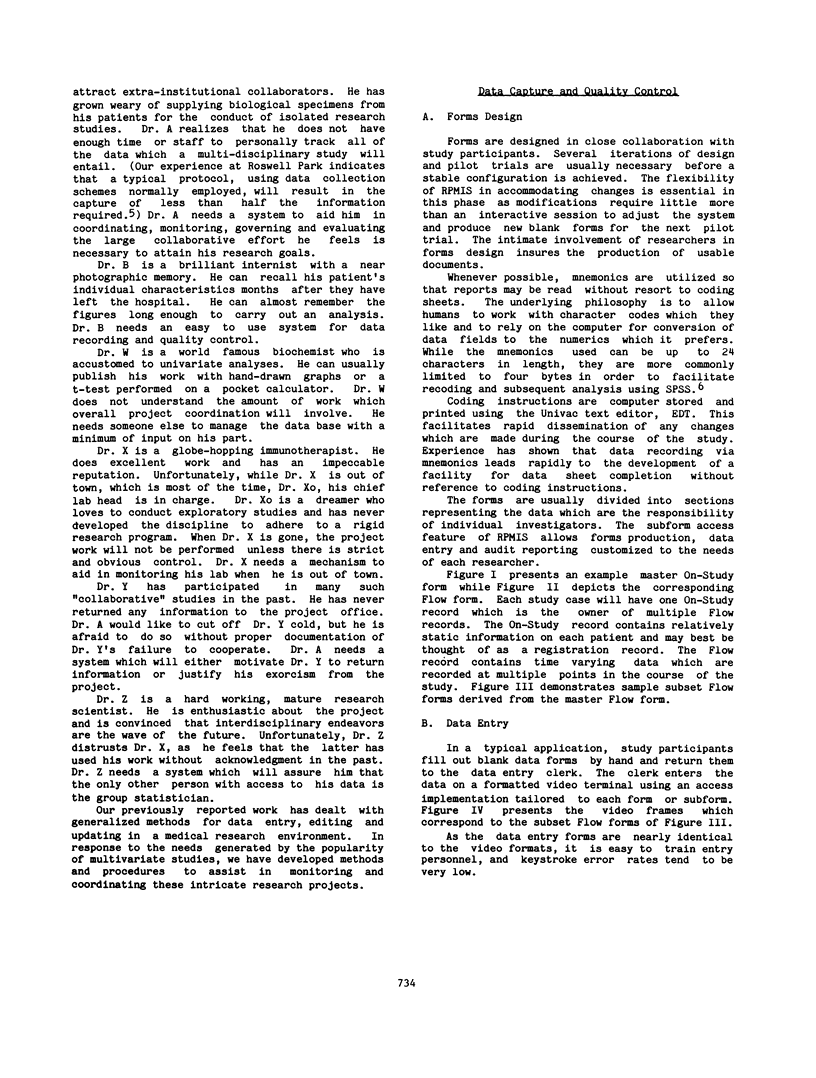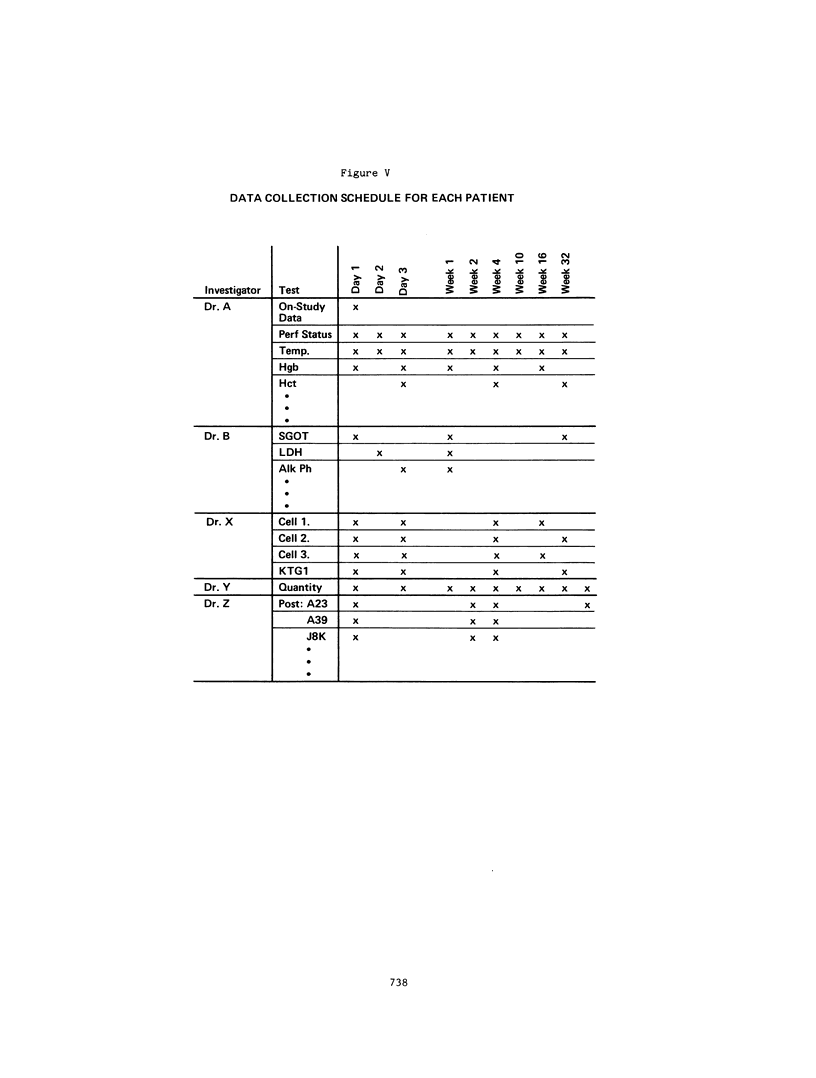Abstract
The most promising and efficient approach to discovery of improved modes of therapy in cancer involves multi-disciplinary studies in which basic scientists collaborate with their clinical brethren in the evaluation of promising leads suggested by laboratory studies. In this fashion, new ideas can be tested as quickly as possible and multivariate methods of data analysis allow simultaneous evaluation and comparison of many prognostic parameters on a single patient population.
Unfortunately, studies of this variety pose many problems in coordination, data capture and decision making which can compromise the value of research performed. Patients must be effectively scheduled for clinic visits, and multiple specimens must be drawn, labeled and delivered to the proper laboratories. Once delivered, the specimens must be analyzed promptly and the results must be returned to the central coordinating office. This process is complicated by the asynchronous manner in which patients present; leaving them at different phases of therapy at any given point in time.This makes the activity schedule for a given clinic or laboratory during a particular week difficult to determine by manual methods. In addition, exploratory studies planned for several years duration are notoriously changeable. New ideas may emerge; parameters are partially evaluated and fail to show promise; staff changes occur; the performance of testing proves excessively difficult or even impossible; and research performed elsewhere sparks interest innew concepts or leads to the discarding of certain study objectives.
In order to assist the principal investigator in administering multi-disciplinary studies, the Roswell Park Management Information System (RPMIS)1 has been augmented to aid in scheduling, monitoring and coordinating complex research endeavors. This paper describes these additions and provides illustrative examples of the use of the system.
Full text
PDF






Selected References
These references are in PubMed. This may not be the complete list of references from this article.
- George S. L., Desu M. M. Planning the size and duration of a clinical trial studying the time to some critical event. J Chronic Dis. 1974 Feb;27(1):15–24. doi: 10.1016/0021-9681(74)90004-6. [DOI] [PubMed] [Google Scholar]


